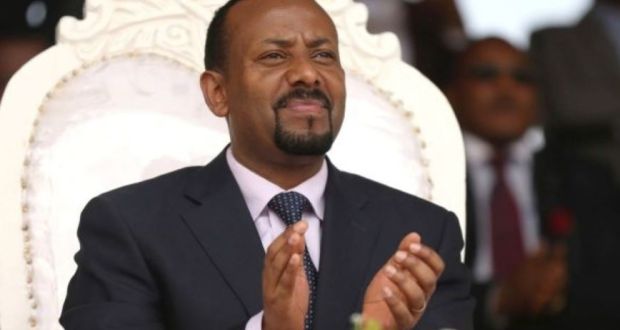Why Ethiopia postponed national elections again
THE National Electoral Board of Ethiopia (NEPE) has again postponed the planned June 5 parliamentary elections in Africa’s second most populated country. The ICIR explains reasons responsible for the indefinite postponement.
Chair of NEBE Birutkan Mideksa announced the postponement of the election in a statement on Saturday following a meeting with political party representatives.
Mideksa said logistical problems that could not be addressed were responsible for the postponement, noting that there had been delays in the delivery of ballot papers across the country.
While Mideksa did not announce a new date for the election, she noted that the electoral body would take into consideration ‘the onset of the rainy season,’ among other things.
Although the NEBE consequently said the postponement would be for two to three weeks, it did not fix a definite date for the elections.
Before now, there had been worries, most from international organisations, concerning the viability of the election and its freedom and fairness.
The United States Department spokesperson Ned Price had urged the Ethiopian government to ensure the respect of assembly of persons, freedom of speech, political participation, among others, if the election must hold as scheduled.
These worries emanated from the rising violence in the Tigray region of the country.
Why Ethiopia postponed national elections again
THE National Electoral Board of Ethiopia (NEPE) has again postponed the planned June 5 parliamentary elections in Africa’s second most populated country. The ICIR explains reasons responsible for the indefinite postponement.
Chair of NEBE Birutkan Mideksa announced the postponement of the election in a statement on Saturday following a meeting with political party representatives.
Mideksa said logistical problems that could not be addressed were responsible for the postponement, noting that there had been delays in the delivery of ballot papers across the country.
While Mideksa did not announce a new date for the election, she noted that the electoral body would take into consideration ‘the onset of the rainy season,’ among other things.
Although the NEBE consequently said the postponement would be for two to three weeks, it did not fix a definite date for the elections.
Before now, there had been worries, most from international organisations, concerning the viability of the election and its freedom and fairness.
The United States Department spokesperson Ned Price had urged the Ethiopian government to ensure the respect of assembly of persons, freedom of speech, political participation, among others, if the election must hold as scheduled.
These worries emanated from the rising violence in the Tigray region of the country.
In August 2020, the Ethiopian government led by Prime Minister Abiy Ahmed postponed the parliamentary elections due to the COVID-19 pandemic, but his decision did not sit well with the Tigray People’s Liberation Front (TPLF), which was ruling the northern region at the time.
Following their resistance, some part of the Tigray region went ahead to hold a parliamentary election, thereby fueling the crisis with the central government led by Ahmed.
Since November, the central government and the TPFL have been at loggerheads, leading to violence and the killing of many civilians.
Amnesty International had said ‘scores or likely hundreds’ of civilians unconnected to the military offensive between the central government and the Tigray region were hacked to death in Mai-Kadra (May Cadera) town in the South-West Zone of Ethiopia’s Tigray region on the night of November 9, 2020.
The United Nations has also said thousands of people have been displaced by the violence as more than five million of the six million population of the Tigray region are now in need of emergency care.
Ahmed, who received a Nobel prize for peace in 2019, now sees the country thrown in yet another serious ethnic crisis.
The TPLF had ruled Ethiopia for almost 25 years before the emergence of Ahmed, who is from the Oromia region as the fourth prime minister of Ethiopia.
By Lukman Abolade





